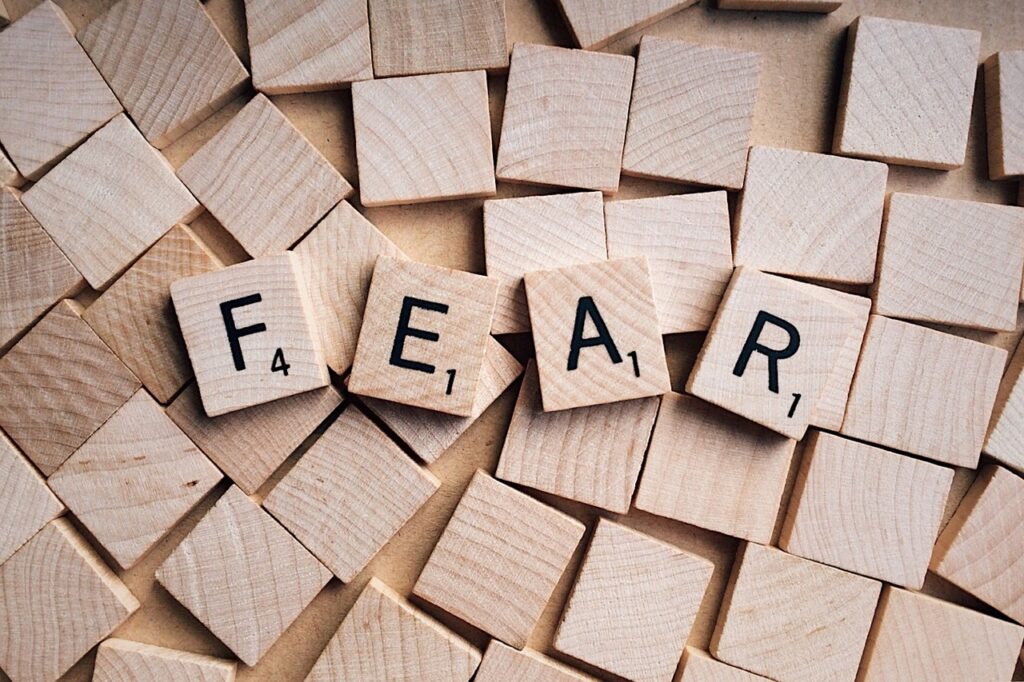
In Islam, invocations hold a special significance in alleviating anxiety and fear. When faced with challenges and negative emotions, Muslim believers turn to specific Arabic invocations to find inner peace with Allah’s help, for invocations are addressed to the Creator of everything.
In this article, we will delve into four key and authentic invocations from the Prophet of Islam, Muhammad (peace and blessings be upon him), designed to soothe fear and anxiety. These invocations, backed by genuine hadiths, provide spiritual comfort to believers grappling with such emotions.
Discover how these Arabic invocations, along with their translations, can assist you in overcoming anxiety and fear.
Don’t want to go through the translation anymore?
30 free minutes with your qualified Egyptian teacher.
Arabic:
“حسبي الله لا إله إلا هو، عليه توكلت وهو رب العرش العظيم”
Transliteration: “Hasbiyallahu la ilaha illa Huwa, ‘alayhi tawakkaltu wa Huwa Rabbu’l-‘arshil ‘adheem.”
Translation: “Allah is sufficient for me; there is no deity except Him. I have put my trust in Him; He is the Lord of the Great Throne.”
Evidence: Prophet Muhammad (peace and blessings be upon him) said, “Whoever says this invocation seven times after every obligatory prayer, Allah will protect him from whatever scares and distresses him.” (Abu Dawood)
Arabic:
“لا إله إلا الله العظيم الحليم، لا إله إلا الله رب السماوات والأرض ورب العرش الكريم”
Transliteration: “La ilaha illallahu, al-‘Azim, al-Halim, la ilaha illallahu, Rabbu’s-samawati wal-ard, wa Rabbu’l-‘arshil kareem.”
Translation: “There’s no deity worthy of worship except Allah, the Magnificent, the Forbearing. There’s no deity worthy of worship except Allah, the Lord of the heavens and the earth, the Lord of the Noble Throne.”
Evidence: Prophet Muhammad (peace and blessings be upon him) stated, “Whoever recites this 100 times daily will have no one more virtuous than him except someone who has recited the same or more.” (Tirmidhi)
Arabic:
“أعوذ بكلمات الله التاماتي من شر ما خلق”
Transliteration: “A’udhu bi kalimatillahi’t-tammati min sharri ma khalaq.”
Translation: “I seek refuge in Allah’s perfect words from the evil He has created.”
Evidence: Prophet Muhammad (peace and blessings be upon him) mentioned, “Anyone who recites this three times in the morning and three times in the evening, no harm will come to him that day.” (Abu Dawood)
To know More: Islamic Invocations for Stress Relief
Arabic:
“اللهم إني أعوذ بك من الهم والحزن، وأعوذ بك من العجز والكسل، وأعوذ بك من الجبن والبخل، وأعوذ بك من غلبة الدين وقهر الرجال”
Transliteration: “Allahumma inni a’udhu bika mina’l-hammi wal-hazan, wa a’udhu bika mina’l-ajzi wal-kasal, wa a’udhu bika mina’l-jubni wal-bukhl, wa a’udhu bika mina ghalabat ad-dayn wa qahri rijal.”
Translation: “O Allah, I seek refuge in You from anxiety and sadness, from weakness and laziness, from cowardice and stinginess, and from the burden of debts and from the oppression of men.”
Evidence: Prophet Muhammad (peace and blessings be upon him) articulated, “Whoever says this seven times in the morning and seven times in the evening, Allah will shield him from all fears and anxieties.” (Abu Dawood)
In conclusion, the invocations – Dua in Islam to relieve anxiety and fear are a valuable tool for believers seeking spiritual solace. Backed by genuine hadiths of Prophet Muhammad (peace and blessings be upon him), they offer an invaluable resource to cope with life’s emotional challenges. By reciting these invocations in Arabic and understanding their meanings, believers can bolster their faith, find inner tranquility, and turn to Allah for peace amidst anxiety and fear. For more insights into these invocations and their application in daily life, feel free to delve deeper into this source of spiritual comfort.
Read more: Invocation – Dua for the Deceased in Islam
Discover the experiences of our delighted clients who have thoroughly enjoyed utilizing this standout feature.
Alhamdulillah I‘m very pleased with the arabic and Qur’an lessons I receive from teacher Umm Tasneem and I‘m also content with the al-dirassa administration team who were very quick in answering any questions I had. In a month I progressed a lot and I cannot wait to continue my studies with al-dirassa. May Allah reward everyone at al-dirassa.
Verified review - view original
My Qur’an teacher is fantastic, she teaches me in a loving and kind way where I look forward to the lessons and learn so much. My Arabic teacher is equally as nice and has a lot of patience with me, she has great expertise in the field and I’ve progressed really quickly with her. Thank you Al-dirassa!
Verified review - view original

Al-dirassa Institute offers you a gift to help you begin your journey to being fluent in Arabic and learning the Quran.

Al-dirassa Institute offers you a gift to help you begin your journey to being fluent in Arabic and learning the Quran.